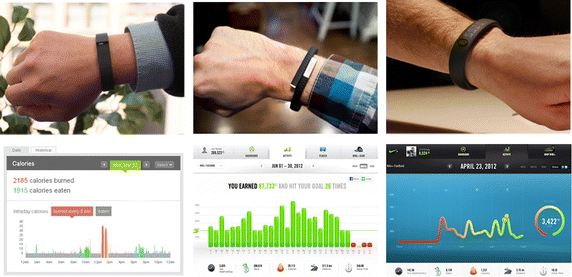In her recently published work, Jordan Etkin asked individuals to count their steps over the course of a day. Not surprisingly, she found an increase in the number of steps taken as compared to the control condition, when individuals weren’t asked to count their steps. What was more interesting, was that step counting led to a reduction in people’s enjoyment of walking. Etkin argued that by invoking the metaphor of “measuring” and highlighting quantitative outcomes, attention is drawn away from the intrinsic joys of an activity towards external rewards (see Deci et al. 1999). Exercise is experienced a little more like work, which in turn may decrease the likelihood of continued engagement in one’s free time (as found in Etkin’s study).
In other words, instead of supporting people with construing exercise as an enjoyable and meaningful activity to guarantee prolonged engagement, activity trackers might establish mechanisms, which guarantee a short-term increase in physical activity at the risk of potentially detrimental long-term effects.
Of’course, this might be a rather narrow vision of these technologies. No doubt, self-quantification is the dominant narrative in marketing, and often in design. But richer narratives may be found if one looks at the ways in which users appropriate such technologies.
To inquire into this, we surveyed recent, memorable experiences people had with activity trackers, and tried to understand these in terms of need fulfilment, using a theoretical and methodological framework proposed by Sheldon et al., 2001. A factor analysis revealed a two-dimensional structure of users’ experience driven by the needs of physical thriving or relatedness. More than just supporting behavioral change, we found trackers to provide multiple psychological benefits, such as enhancing feelings of autonomy as people gained more control about their exercising regime, or experiencing relatedness, when family members purchased a tracker for relatives and joined them in their efforts towards a better, healthier self. Interestingly, we found that while numerical feedback lost its relevance over time, users continued to wear the tracker for a number of reasons, ranging from the perceived future value of data accumulation, to the mere symbolic empowerment that users felt when wearing the tool.
